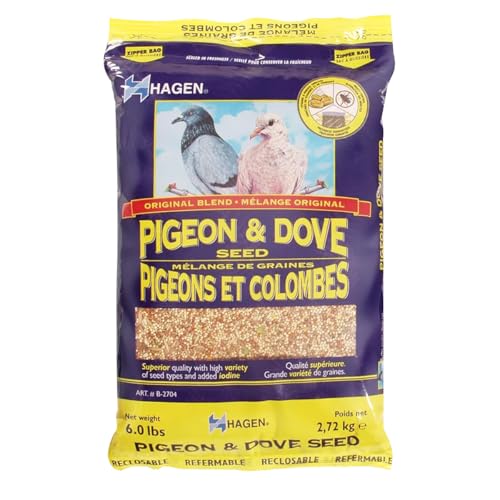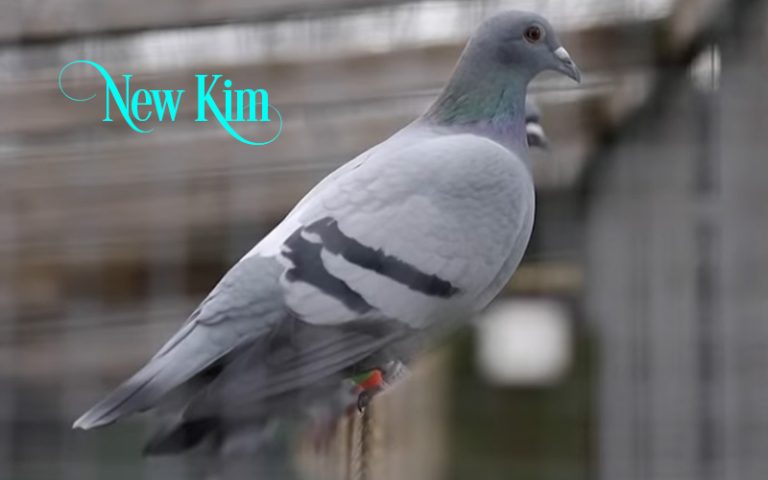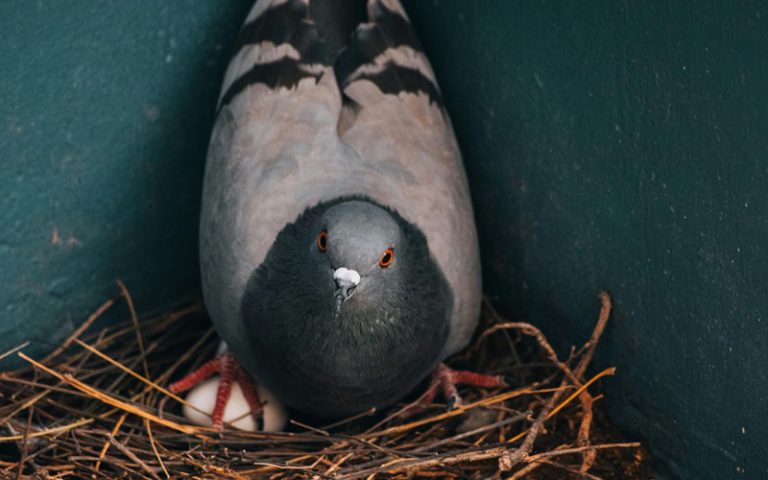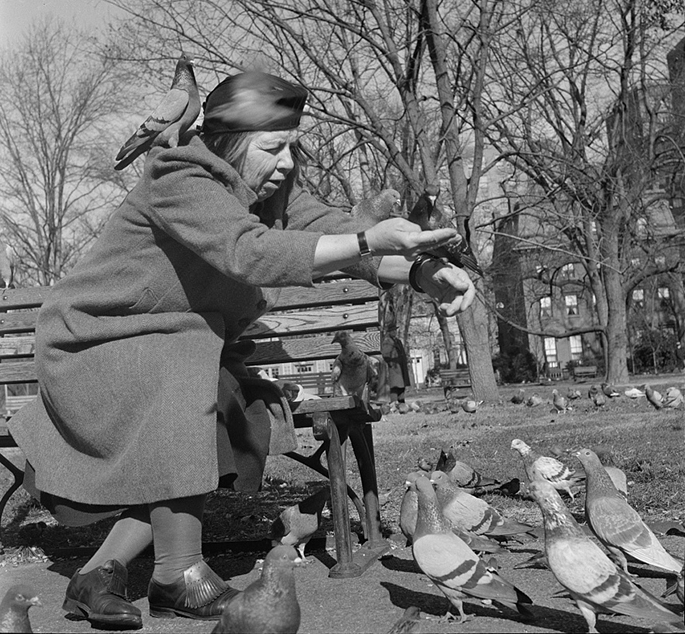Can Pigeons Eat Rice? Is Rice Safe to Feed Your Pigeons?
Yes, pigeons can eat rice. Both cooked and uncooked rice are safe for pigeons to consume.
Pigeons are adaptable birds that thrive in urban environments. They often scavenge for food, which can include grains like rice. Many people wonder if rice is a suitable option for feeding these birds. Understanding their dietary needs can help provide the right nutrition.
Pigeons primarily eat seeds, fruits, and vegetables, but they can also benefit from grains. Rice, whether cooked or uncooked, provides carbohydrates that fuel their energy levels. Offering rice as an occasional treat can diversify their diet.
However, it’s crucial to ensure that rice does not become their primary food source. Balancing their meals will keep them healthy and thriving.
The Myth Surrounding Pigeons And Rice

Credit: m.youtube.com
Many people believe that feeding pigeons rice can harm them. This idea has spread widely. Let’s explore the origins of this myth and why it still exists.
Origins of The Rice Myth
The myth about pigeons and rice has a fascinating backstory. It likely began due to:
- Misunderstandings: Some people thought uncooked rice expands in birds’ stomachs.
- Urban Legends: Tales spread quickly in cities about birds’ diets.
- Media Influence: Stories in movies and cartoons often exaggerate.
These factors contributed to the belief that rice is harmful to pigeons.
Why The Myth Persists
This myth continues for several reasons:
- Fear: Many want to protect wildlife and avoid harm.
- Lack of Knowledge: Few understand pigeons’ actual dietary needs.
- Social Media: Misinformation spreads rapidly online.
People often share warnings without checking facts. This keeps the myth alive.
| Myth | Fact |
|---|---|
| Pigeons can’t eat rice. | Pigeons can eat rice safely. |
| Rice expands in their stomach. | Rice does not harm pigeons in this way. |
Understanding the truth helps promote better care for pigeons.
What Pigeons Actually Eat?

Credit: avianreport.com
Pigeons have a varied diet. They eat grains, seeds, fruits, and vegetables. Understanding their natural diet helps us feed them properly.
Natural Diet of Pigeons
Pigeons are granivorous birds. Their diet mainly consists of:
- Seeds: Sunflower, millet, and safflower.
- Grains: Wheat, corn, and barley.
- Fruits: Berries, apples, and grapes.
- Vegetables: Leafy greens and carrots.
Pigeons also eat small insects and worms. This adds protein to their diet. They forage on the ground for food. Pigeons prefer food that is easy to digest.
Human Foods That Are Safe For Pigeons
Some human foods are safe for pigeons. Here’s a list:
| Food Item | Safe for Pigeons? |
|---|---|
| Cooked rice | Yes |
| Fruits | Yes |
| Vegetables | Yes |
| Bread | No |
| Chocolate | No |
Feeding pigeons healthy foods helps them thrive. Avoid harmful items like chocolate and bread. Offer fresh fruits and vegetables instead.
The Truth About Rice And Birds
Many people wonder, can pigeons eat rice? This question often arises from myths and misconceptions. Understanding the effects of rice on birds is essential. Let’s explore the facts surrounding rice consumption by pigeons.
Scientific Evidence On Rice Digestion
Research shows that pigeons can digest rice. Studies indicate that their digestive systems handle various grains well. Here are some key points:
- Pigeons possess strong gizzards to grind food.
- Rice provides energy through carbohydrates.
- Whole grains are beneficial for their health.
Some misconceptions claim that rice expands in birds’ stomachs. This claim lacks scientific backing. Birds have efficient digestive systems. They process rice just like other grains.
Experts’ Opinions On Feeding Rice To Pigeons
Experts generally agree that rice is safe for pigeons. Here are some insights:
| Expert | Opinion |
|---|---|
| Dr. Jane Goodwin | Rice is a good source of energy. |
| Professor Mark Sutherland | Whole grains, including rice, are nutritious. |
| Dr. Emily Rhodes | Moderation is key in any bird’s diet. |
Feed pigeons rice as a small part of their diet. Balance it with seeds, fruits, and vegetables. This ensures they receive all necessary nutrients.
Health Implications Of Feeding Rice To Pigeons
Feeding rice to pigeons raises questions about their health. Understanding the nutritional value and potential risks is essential. Some pigeon enthusiasts worry about the effects of rice on their health. This section explores both sides of the argument.
Nutritional Value Of Rice For Pigeons
Rice can provide some nutritional benefits for pigeons. Here’s a breakdown of its value:
| Nutrient | Value per 100g |
|---|---|
| Carbohydrates | 80g |
| Protein | 2.7g |
| Fat | 0.3g |
| Fiber | 1.0g |
Rice mainly offers carbohydrates. This gives pigeons energy. However, it lacks other essential nutrients.
Potential Risks And Benefits
Feeding rice to pigeons has both risks and benefits. Here’s a quick summary:
- Benefits:
- Provides quick energy.
- Easy to digest.
- Widely available and inexpensive.
- Risks:
- May lead to obesity.
- Lacks essential vitamins and minerals.
- Wet rice can expand in the stomach.
Feeding rice occasionally is safe. Avoid making it a staple food. Balance it with other foods for optimal health.
Alternative Foods For Pigeons
Pigeons thrive on a balanced diet. While rice may not harm them, it isn’t their best food choice. Many other options provide better nutrition. Here are some healthy alternatives and foods to avoid.
Healthy Snacks For Pigeons
Pigeons enjoy a variety of healthy snacks. These snacks can be a great addition to their diet. Here are some options:
- Seeds: Sunflower seeds, millet, and safflower seeds.
- Grains: Oats, barley, and corn.
- Fruits: Apples, bananas, and berries.
- Vegetables: Carrots, peas, and spinach.
These foods are full of vitamins and minerals. They keep pigeons healthy and active. Always chop fruits and vegetables into smaller pieces. This makes it easier for pigeons to eat.
Foods To Avoid Giving To Pigeons
Some foods can harm pigeons. Avoid feeding them these items:
| Food Item | Reason to Avoid |
|---|---|
| Chocolate | Toxic to birds. |
| Caffeine | Can cause heart problems. |
| Avocado | Contains a toxin called persin. |
| Onions | Can damage red blood cells. |
Always check food before giving it to pigeons. Safety is key for their health. Providing the right diet keeps them happy and strong.

Credit: www.reddit.com
How To Feed Pigeons Responsibly
Feeding pigeons can be a joyful experience. It’s important to do it responsibly. Proper feeding helps keep pigeons healthy and safe.
Best Practices In Bird Feeding
Follow these best practices to feed pigeons responsibly:
- Choose Healthy Foods: Offer seeds, grains, and vegetables.
- Avoid Processed Foods: Skip bread and junk food.
- Feed in Moderation: Give small amounts to avoid waste.
- Observe Feeding Times: Feed them at regular intervals.
- Use Clean Containers: Always keep feeding areas clean.
Creating A Safe Feeding Environment
A safe environment helps pigeons thrive. Here are some tips:
- Pick a Quiet Spot: Choose areas away from traffic.
- Provide Shelter: Look for spots with natural cover.
- Avoid Crowded Areas: Less crowd means less stress.
- Keep Water Nearby: Always provide fresh water.
- Watch for Predators: Keep an eye out for hawks or cats.
| Food Type | Benefits | Notes |
|---|---|---|
| Seeds | High in energy | Good for everyday feeding |
| Grains | Rich in nutrients | Use whole grains when possible |
| Vegetables | Provide vitamins | Chop into small pieces |
Impact Of Urban Feeding On Pigeon Populations
Feeding pigeons in cities affects their behavior and health. People often think they are helping. This action can lead to increased pigeon populations. Understanding this impact is important for urban wildlife management.
Effects Of Feeding On Pigeon Behavior
Feeding pigeons changes their natural habits. Here are some key effects:
- Dependency on Human Food: Pigeons rely on people for food.
- Reduced Foraging Skills: Pigeons stop searching for natural food.
- Increased Aggression: Competition for food can lead to fighting.
- Altered Breeding Patterns: More food can lead to larger flocks.
These changes can harm pigeon health. They may eat unhealthy foods instead of natural grains.
Managing Pigeon Populations In Cities
Urban areas face challenges with pigeon populations. Effective management strategies include:
- Public Education: Teach people about healthy feeding practices.
- Feeding Regulations: Create rules about feeding in public areas.
- Habitat Modification: Reduce places for pigeons to nest.
- Population Control: Use humane methods to manage flock sizes.
These strategies help maintain a balanced ecosystem. They ensure pigeons thrive without overwhelming urban spaces.
Common Bird-feeding Myths Debunked
Many myths surround bird feeding. These myths can harm birds. Let’s explore common misconceptions, especially about pigeons and rice.
Separating Fact From Fiction
Understanding what birds can eat is crucial. Here are some common myths:
- Pigeons can’t eat rice. This is false. Pigeons can eat cooked rice safely.
- Birds will explode if they eat rice. This myth is untrue. Birds digest rice without harm.
- Bread is a good food for birds. Bread offers little nutrition. It can even harm them.
- Birds only eat seeds. Birds enjoy a variety of foods. Fruits and veggies are great too.
Feeding birds a balanced diet is important. Provide a mix of seeds, grains, and fruits.
The Role Of Education In Bird Conservation
Education helps protect birds. Understanding proper feeding habits is key. Knowledge can prevent harmful practices.
| Myth | Truth |
|---|---|
| Pigeons shouldn’t eat rice | Pigeons can eat cooked rice. |
| Rice causes birds to explode | Rice is digested safely by birds. |
| Bread is good for birds | Bread lacks nutrition; it can harm birds. |
| Birds eat only seeds | Birds eat various foods, including fruits. |
Educating others about bird feeding helps conservation. Share accurate information. Promote healthy bird feeding practices.
Frequently Asked Questions
Can Pigeons Eat Cooked Rice?
Yes, pigeons can eat cooked rice safely. It’s a nutritious option and easy for them to digest.
Is Uncooked Rice Harmful To Pigeons?
Uncooked rice is not harmful to pigeons. Myths suggest it expands, but this is unfounded.
What Types Of Rice Can Pigeons Eat?
Pigeons can eat various rice types, including white, brown, and wild rice. Avoid seasoned or flavored varieties.
How Often Can Pigeons Eat Rice?
Rice can be an occasional treat for pigeons. Balance their diet with seeds, grains, and vegetables for optimal health.
Can Pigeons Eat Rice Without Harm?
Yes, Pigeons eat rice without harm. Both cooked and uncooked rice are safe for them. Many people believe that uncooked rice can cause problems, but this is a myth. Pigeons have strong digestive systems that can handle it. However, it’s best to offer rice as a treat, not the main food.
A balanced diet includes seeds, grains, fruits, and vegetables. Feeding pigeons rice occasionally can be enjoyable for them, but remember to keep their overall diet varied for good health.







